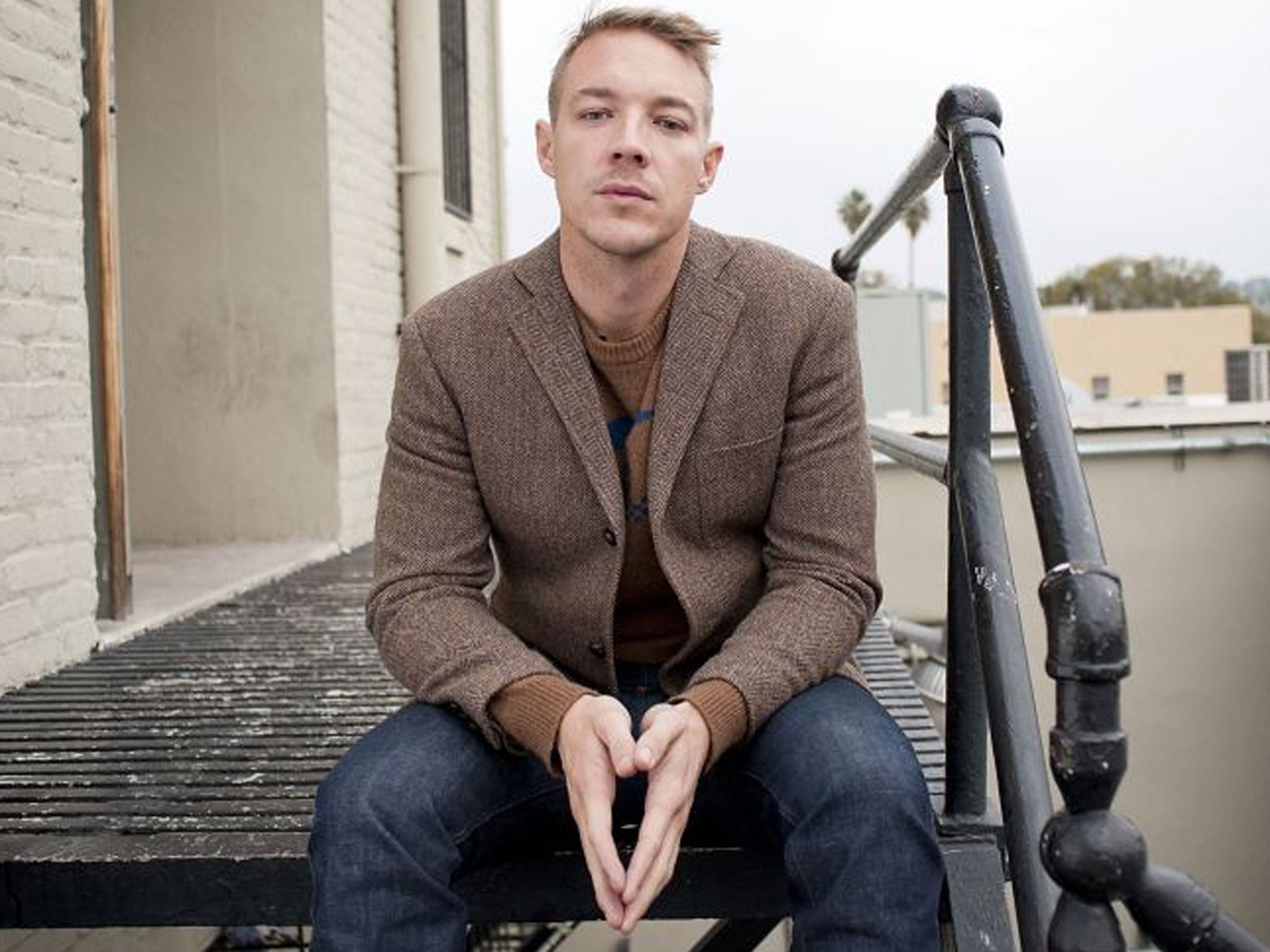Dancehall's new steps
The genre that spawned anti-gay anthems is back in the big time, with a fresh attitude

Your support helps us to tell the story
From reproductive rights to climate change to Big Tech, The Independent is on the ground when the story is developing. Whether it's investigating the financials of Elon Musk's pro-Trump PAC or producing our latest documentary, 'The A Word', which shines a light on the American women fighting for reproductive rights, we know how important it is to parse out the facts from the messaging.
At such a critical moment in US history, we need reporters on the ground. Your donation allows us to keep sending journalists to speak to both sides of the story.
The Independent is trusted by Americans across the entire political spectrum. And unlike many other quality news outlets, we choose not to lock Americans out of our reporting and analysis with paywalls. We believe quality journalism should be available to everyone, paid for by those who can afford it.
Your support makes all the difference.With Bruno Mars and Wyclef Jean guesting on Diplo's new Major Lazer album, Jamaican artist Busy Signal guesting on No Doubt's comeback record and bass-heavy tunes heard in the UK's hipster clubs, Jamaican dancehall seems to be enjoying a peak of influence on mainstream pop and underground dance. And yet, a decade ago, the genre was mired in controversy.
As a musical term, dancehall has been used since the Eighties to describe a distinct style emphasising rhythm over melody, with Sly & Robbie among its most famed producers. A step-change came with the ditching of in-house bands for pure digital instrumentation, providing a platform for the high-energy ragga vocalists that emerged in the Nineties and vied to provide the killer line over popular backing tracks, or riddims. Much of the lyrical content, about guns and girls, was instantly familiar to hip-hop fans, though it was the occasional homophobic number that proved poisonous when dancehall artists started to achieve wider fame in the early Noughties.
An early warning shot came with Buju Banton's “Boom Bye Bye”, an especially vile example that seemed to call for the murder of gay men and helped lead to a campaign against homophobic content that gathered strength as a new wave of Jamaican artists began to cross over. In 2003, gay rights group OutRage! called for the arrest of several dancehall singers due to lyrics they saw as inciting violence, including Elephant Man, who was gaining a UK foothold with major-label backing.
Tracks were pulled off iTunes, gigs cancelled and the Mobo awards withdrew nominations from targeted performers, among them the fierce Vybz Kartel. At first, Jamaican artists defended their right to free speech, claiming the campaign was racist, but most have chosen to clean up their acts. In 2007, Sizzla and Beenie Man were reported to have signed the Reggae Compassionate Act, an agreement condemning anti-gay violence, while the vocal group TOK signed their own declaration. By then, though, dancehall's global push had run out of steam, though whether that is all down to OutRage! is hard to discern.
Certainly now the dancehall sound is sounding fresh to a new generation of pop and dance acts. Diplo, the American DJ and producer who has worked with everyone from MIA to Usher, embarked on his first dancehall-influenced project in 2009, the debut Major Lazer album Guns Don't Kill People… Lazers Do. This collaboration with the UK producer Switch featured a range of Jamaican vocalists, among them the previously tarnished Vybz and TOK, alongside such US names as Santigold and Nina Sky. It is best known for the bonkers, carnival-esque track “Pon de Floor”, sampled on Beyoncé's 2011 mega-hit “Run The World (Girls)”.
For its follow-up, Free The Universe, delayed from last November, Diplo has called in a wider range of contacts. As well as Wyclef Jean and R'n'B crooner Bruno Mars, there are performances by female indie protagonists: the producer has called in left-field rapper and feminist artist Peaches plus Dirty Projectors' singer/guitarist Amber Coffman, two artists who would have little truck with anti-gay rhetoric. Free The Universe again features the cream of the Caribbean island's music scene. Vybz appears once more, alongside a typically exuberant cameo from Elephant Man, plus a range of less familiar names that demonstrates how dancehall remains a vital force. The most established figure among them is the smooth-voiced Busy Signal, a leading artist on the scene since the mid-Noughties and a previous Major Lazer collaborator.
Last year, Busy featured on the Diplo-produced title track from No Doubt's comeback album Push and Shove, suggesting he might be ripe for overseas success himself. Signed to the influential VP Records, Busy has shown he can draw on reggae's rich heritage – as on last year's Reggae Music Again set. There is a closer meeting of the generations on Diplo's other, higher-profile assignment, as executive producer for Snoop Dogg's move into Jamaican music, Reincarnated, that sees the West Coast hip-hop veteran reinvent himself as a reggae artist, Snoop Lion. Diplo crops up on Vice's documentary film of the same title.
Snoop's pull attracted reggae legend and former Bob Marley collaborator Bunny Wailer to guest on the album alongside much younger names, among them former Vybz acolytes Popcaan and Mavado. Wailer has since became disenchanted with Snoop's supposed conversion, though interest in Snoop's Reincarnated project is keen ahead of the album's release later this month and, with the film on cinema release, both remind us of Jamaica's hothouse creativity. It remains to be seen, though, if home-grown artists can gain international leverage.
Major Lazer's album 'Free The Universe' is on Because Music. Snoop Lion's 'Reincarnated' is on RCA Records
Join our commenting forum
Join thought-provoking conversations, follow other Independent readers and see their replies
Comments